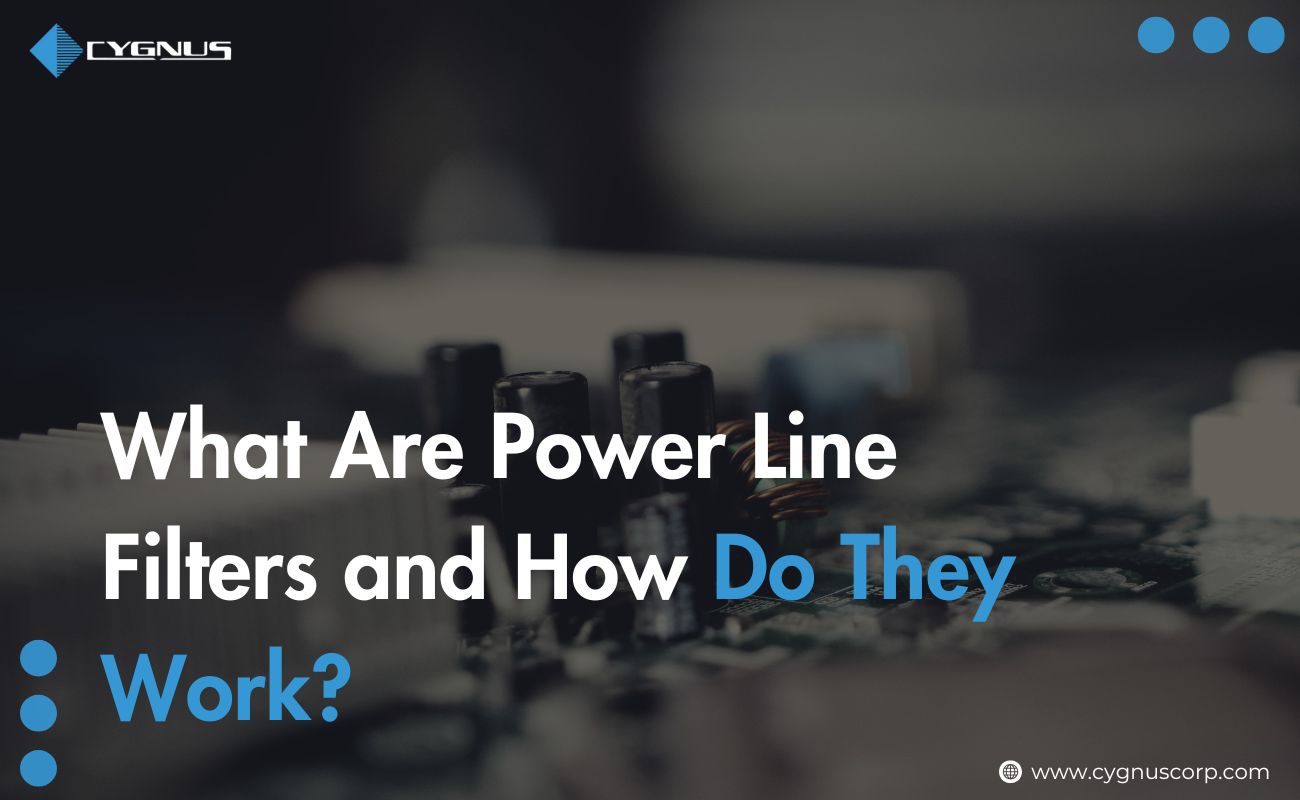When it comes to keeping industrial systems running smoothly, power quality is everything. Even the most advanced machines can underperform or fail when exposed to unwanted noise and electrical interference. This is where power line filters step in — an unsung hero that ensures clean, stable, and interference-free power supply.
In this blog, we’ll break down what power line filters are, how they work, the different types available, and why they’re critical for industries worldwide.
Why Are Power Line Filters Important?
Power line filters are designed to block two major disruptors:
- Electromagnetic Interference (EMI) – caused by switching devices, motors, or high-frequency signals.
- Radio Frequency Interference (RFI) – unwanted noise from external sources like wireless devices or radio signals.
Without filters, these disturbances can wreak havoc on sensitive systems.
Real-world scenarios include:
- CNC machines losing accuracy due to interference in their control systems.
- Hospital equipment malfunctioning, which could compromise patient safety.
In short, power line filters aren’t just about performance — they’re about safety, efficiency, and reliability.
How Do Power Line Filters Work?
Basic Working Principle:
At their core, power line filters are like bouncers at a nightclub — they let in only what belongs. While useful power frequencies pass through, unwanted noise is blocked or redirected to ground. This ensures your equipment receives only the “clean” power it needs.
Key Components of Power Line Filters:
- Capacitors – absorb and block high-frequency noise.
- Inductors – choke out unwanted currents by resisting sudden changes.
- Resistors – balance energy flow and prevent overheating.
Together, they form a protective barrier between noisy power lines and your sensitive devices.
Step-by-Step Process:
- Incoming power enters the filter.
- Capacitors and inductors trap or redirect interference.
- Filtered power flows out, safe for your equipment.
👉 Imagine it like a water purifier: dirty water goes in, pure water comes out.
Types of Power Line Filters:
Single-Phase Filters:
Used in smaller equipment such as medical devices and laboratory instruments.
Three-Phase Filters:
Common in heavy industrial machinery, robotics, and large-scale automation systems.
DC Line Filters:
Designed for solar systems, EV charging stations, and batteries, where DC currents must be kept stable.
Custom Filters:
Built for specialized applications where standard solutions fall short — ideal for industries with unique compliance or design requirements.
Applications of Power Line Filters:
Power line filters are everywhere, quietly ensuring uptime and safety. Common uses include:
- Manufacturing plants & automation systems – preventing breakdowns and ensuring precision.
- Data centers and IT infrastructure – protecting servers from costly downtime.
- Medical and laboratory equipment – keeping diagnostic results accurate.
- Renewable energy systems – stabilizing power from solar and wind inverters.
- Aerospace and defense – ensuring mission-critical reliability.
👉 For a deeper dive, check out Choosing the Right Power Line Filters for Industrial Applications.
How to Choose the Right Power Line Filter?
When selecting a filter, consider:
- Specs vs. Needs – match the filter’s voltage and current rating to your system.
- Environment – harsh settings with dust, humidity, or vibration require more robust designs.
- Compliance – ensure it meets standards like CE, UL, and FCC.
- Customization – in some cases, only a tailored solution will do.
Choosing correctly can prevent costly downtime and extend the life of your equipment.
Common Problems Without Power Line Filters:
So, what happens if you skip using filters?
- Equipment downtime – leading to lost productivity.
- Data errors or corrupted signals – costly in IT and automation systems.
- Safety hazards – especially in healthcare, aviation, and defense industries.
👉 Simply put: no filters = no reliability.
Future of Power Line Filtering:
As industries evolve, so do their demands on filtering solutions:
- Industry 4.0 & smart factories – increased automation requires ultra-stable power.
- IoT and 5G integration – more devices mean more potential interference.
- Miniaturization & advanced suppression – filters are getting smaller, smarter, and more efficient.
The future points to filters becoming even more critical as the world embraces intelligent, connected systems.
FAQs About Power Line Filters
What is the purpose of a power line filter?
To block unwanted noise (EMI/RFI) and ensure equipment receives clean, stable power.
Do I need a power line filter for residential use?
Generally, no — they’re more common in industrial, medical, and data applications.
What’s the difference between EMI and RFI filters?
Both deal with interference, but EMI relates to electrical noise while RFI deals with radio signals.
How long do power line filters last?
With proper maintenance, they can last years, depending on usage and environment.
Can a surge protector replace a power line filter?
No. Surge protectors guard against spikes, while filters handle continuous noise.
Conclusion:
Power line filters may not be flashy, but they’re vital for keeping industries safe, efficient, and reliable. From hospitals to factories, they protect equipment from unseen dangers that could cost millions in downtime or damage.
If you’re considering filters for your systems, partner with a trusted provider who understands your needs. At Cygnus Corp, we specialize in delivering solutions that keep businesses running without disruption.
Clean power means confident operations.




